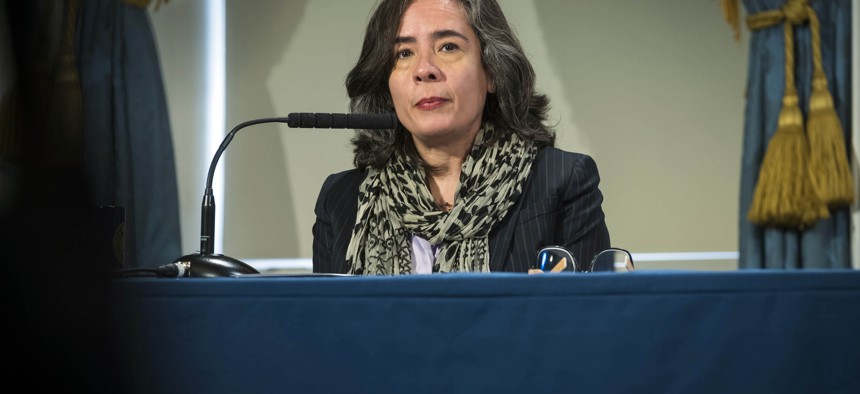De Blasio slow to move people out of shelters, jails despite orders

Oxiris Barbot, the commissioner of the New York City Department of Health and Mental Hygiene. Ed Reed/Mayoral Photography Office
In late March, New York City Health Commissioner Oxiris Barbot ordered the city to move people out of congregate settings such as homeless shelters and jails to mitigate the spread of COVID-19, but implementation has been slow despite promises that the federal government will reimburse the costs, the Daily News reports.
The March 25 order allows for the transfer of people housed at facilities overseen by the Administration of Children’s Services, the Department of Corrections, the Department of Youth and Community Development and the Department of Social Services. This means institutions such as juvenile detention centers, homeless shelters and jails could transfer anyone who needed to be isolated or quarantined to slow the virus’s spread.
The Federal Emergency Management Agency sent a letter to city officials five days later approving the request to move symptomatic and asymptomatic people in congregate settings who could not otherwise isolate. But despite the approval, the city transferred just a few hundred symptomatic people before April 11.
Advocates for the homeless who have been pushing for the city to place homeless people into hotels for isolation purposes have criticized officials for dragging their feet on developing such a plan because of cost concerns despite the federal government’s funding pledge.
City officials didn’t respond to questions from Politico about which part of the FEMA authorization caused uncertainty about reimbursement.
De Blasio committed to placing 1,000 homeless people in hotel rooms each week in an announcement last week; the administration has already placed 7,000 people in hotels. But the New York City Council is pushing to allow all single adults in shelters or eligible to enter shelters to have access to private rooms for the duration of the crisis.